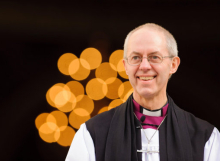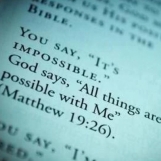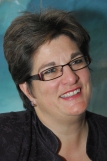The Church of England is to begin talks on whether to authorise prayers to mark same-sex relationships.
The question is raised in the resources published this week to go with the "shared conversations" on sexuality which are about to enter their second stage.
The "second circle" of the shared conversations, set up last year in an attempt to resolve the Church's crisis over sexuality, will begin regionally in April. The dioceses will meet in 13 "clusters" of between three and five dioceses at venues across England between April this year and March next year.
The groups will consist of gay and straight clergy and laity.
One of the questions the groups are being asked to consider is: "Should the church offer prayers to mark the formation of a faithful, permanent, same sex relationship? If so, what is the right level of formal provision that should be made?"
Although the question is explicit, sources told Christian Today that this was in no way meant to infer there was an "intended outcome" of any kind.
A further question asks: "More specifically, given that same sex marriages are now taking place, what should our pastoral and missional response be to married same sex couples who seek to be part of the life of our church locally?"
The Church of England's position has traditionally been that, whatever their faith, a couple is entitled to be married in the parish church of either, although marriage after divorce is less straightforward.
When same-sex marriage became legal in Britain last year, the Church of England, which opposed the legislation, won "protection" in law for itself from ever having to perform one.
This means that some couples who are legally entitled to marry cannot now do so in their own parish Church, even if they are practising Christians and have been churchgoers all their lives.
One of the difficulties for the Church of England is the consequences of a change of mind for the wider Anglican Communion, of which it is the "mother" church. Some Anglican provinces function in countries where homosexuality is illegal and carries serious penalties.
The questions in the conversations also ask: "How might parish churches in England reflect upon the responsibilities of being part of the worldwide Anglican Communion, in ways which remain true to their vocation to witness to God effectively in their local context?"
Those taking part are being asked to consider whether the concept of "pastoral accommodation" might help Anglicans to honour the consciences of fellow Christians while recognising that the church's present teaching on sexuality has not changed.
In a paper put forward for the conversations arguing for the traditional, Biblical position, Dr Ian Paul, honorary assistant professor at Nottingham university, concludes: "It has been claimed that the biblical texts do not speak to our current context, since they show no knowledge of stable, same-sex, committed relations. But this is not the case; we know from other ancient texts that same-sex relations took a variety of forms. Though unequal, pederastic relations were the most common, equal partnerships akin to same-sex marriage were not unknown.
"It would therefore be more accurate to say that the biblical texts show no interest in the form that same-sex relations take. Scripture rejects the notion of 'orientation' as of defining significance in human identity, instead putting the binary identity of gender at the centre of its theological anthropology."
In another paper, Canon Loveday Alexander, emeritus professor of Biblical studies at Sheffield university, says just "walking away" from the Bible is not an option for herself or the Church. "We can't just abandon this text which has nourished the life of faith for two millennia. I can't turn my back on a text which has sustained and informed my own faith for as long as I can remember. We have to stay with the Bible — but we have to find a way of making sense of it, in a world that is very different from the world (or rather worlds) in which it was written."
But Dr Philip Groves, of the Anglican Communion, says in a third paper that the answer is not in choosing one option over another, or in finding a compromise that holds the strengths and weaknesses of each option in tension. "The answer is to aim for both."
He concludes: "The radical step asked of the Church of England in deciding to enter into good disagreement is to find the energy for this mission. It is about reconnecting with society and discovering faithfulness. It is about relevance and identity. It will be hard, but it will be rewarding.
"The process will need to reflect theological diversity and to do this it will need to develop trust and relationships between unlike people so that the Scriptures and traditions of the Church can be properly examined and ways of faithfulness emerge.
"The time has come for good disagreement."
Jayne Ozanne, director of Accepting Evangelicals, who recently "came out" as gay in an interview with Christian Today, welcomed the publication of the "conversations" timetable and resources.
She said the key was to accept there were different ways of reading Scripture. "What we are looking at is creating that middle space of accepting, as we have done with other issues, that there is an integrity to someone's faith if they hold a different view on this."
She said it was critical for the Church to create forums where people of different views could engage "safely" with each other.
"For me, Jesus embodied grace and truth. It is about grace, and understanding the hurt of those who hold a different point of view. For too long this has been a hot issue, a theological debate which has been a battle of words.
"When you embody these words in experience and personal testimony as we see Jesus did, I believe they take on a new meaning and authority."
The conversations were just the start.
She called for reassurances of a "safe space" for all those taking part, including the suspension of any disciplinary measures against clergy. There are fears that clergy who share things in the conversations that might technically be against the rules, such as experience of a gay physical relationship, could be vulnerable to disciplinary action.
Ms Ozanne said: "For some, their very livelihoods are on the line. Words can never be unspoken. It is absolutely crucial that we look to our bishops to accept a moratorium on clergy discipline throughout these two years."


















